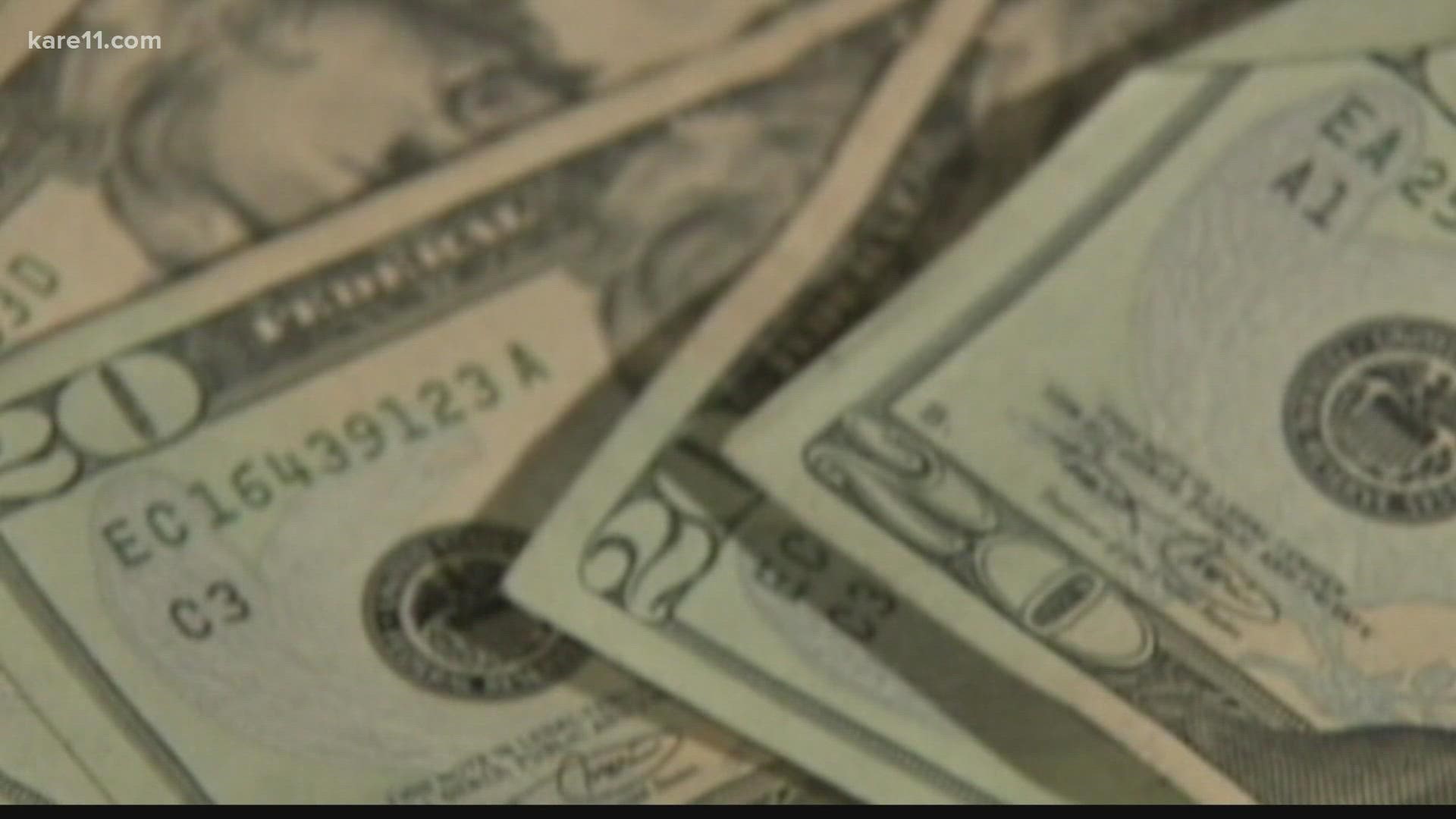MINNEAPOLIS — The City of Minneapolis is getting ready to launch a pilot this spring that gives chosen families $500 a month to use however they want.
The city is starting its program just as St. Paul's pilot winds down.
"This is a pretty unique program. The city has not offered cash assistance in this way," said Erik Hansen, director of economic policy and development for the city of Minneapolis.
Applications are closed and the city is now in the process of enrolling 200 families in the pilot. There are certain eligibility requirements, including being impacted by the pandemic.
Families enrolled in the Minneapolis Guaranteed Basic Income Pilot will receive $500 every month for two years. There are no strings attached on how the money gets spent.
"We know that family expenses aren't even every month. One month could be a heavy childcare month... the next month might not be," said Mark Brinda who manages workforce development for the city of Minneapolis.
According to Brinda, they received more than 13,000 applications although not everyone who applied qualified for the program.
"As a city, we're investing directly in communities and families through the new Guaranteed Basic Income Program. From covering critical needs like reliable childcare, maintenance on a family car, or the ability to stay in school, the new support will help provide a foothold for reaching important financial goals that would otherwise be just out of reach," said Minneapolis Mayor Jacob Frey in a statement.
Money from the American Rescue Plan Act (ARPA) will be used to fund the pilot. The city is working with the Federal Reserve Bank of Minneapolis to study the results.
"School costs and sometimes people don't complete higher (education); they don't start a training program. They might commit to starting a nursing program but can't complete because of income. What would a stabilization of $500 a month do in a family like that? We don't have those outcomes yet but we'll be asking those questions of the families that we have in and does that then lead to finishing and does it lead to that stability that we're hoping is built into this," Brinda said.
But results from Stockton, Calif.'s guaranteed income program are promising. A study found it helped recipients find full-time jobs and that they spent a majority of the money on necessities like food.
"All of this is about shifting our lens of the way we approach poverty in America. We are 60 years into a war on poverty and we're just now getting around to trying to give money to the poor. Most of the programs that we create, most of the resources that we create, really center around saying, 'Here's a pot of resources but there's conditions. You can only use this for childcare; you can only use this for housing,'" St. Paul Mayor Melvin Carter said.
Mayor Carter became one of 11 mayors across the country to co-found Mayors for a Guaranteed Income. There are now 57 mayors involved, including Mayor Frey.
The City of St. Paul became the second pilot after Stockton, and that has now also grown to more than two dozen pilots.
St. Paul's pilot started in fall 2020 — providing 150 families with $500 per month for up to 18 months. The last of those payments will start wrapping up in February. The city is doing an independent evaluation on the results.
The People's Prosperity Pilot was offered to families participating in CollegeBound Saint Paul, the city's college savings initiative which is providing every child born to a St. Paul resident with a college savings account and a $50 deposit.
"Long-term, our argument is not that this something that the city or that cities across our country can sustain with the limited kind of outnumbered resources that we have to work with. Our argument is to be able to bring some really clear and compelling research data to our state legislature and to our United States Congress to say this is an intervention that is really worth looking at at a state and federal level," Mayor Carter said.
Hansen added, "We need sustained funding. I don't think it's just primarily cities. We see poverty across the country."
Mayor Carter said he hopes this also sparks conversations around policies that may discourage people from taking a new job or promotion because of the possibility of losing their federal benefits.
"This is a perfect opportunity to shine a spotlight on the ways in which the policies that we've created in Washington, D.C. and in the state's Capitol actually perpetuate and sustain some of the disparities," he said.
While St. Paul used CARES Act dollars to fund the initial pilot, Mayor Carter said he plans on bringing a proposal to city council that would help them continue their work using ARPA dollars.
Watch more Breaking The News:
Watch all of the latest stories from Breaking The News in our YouTube playlist:

